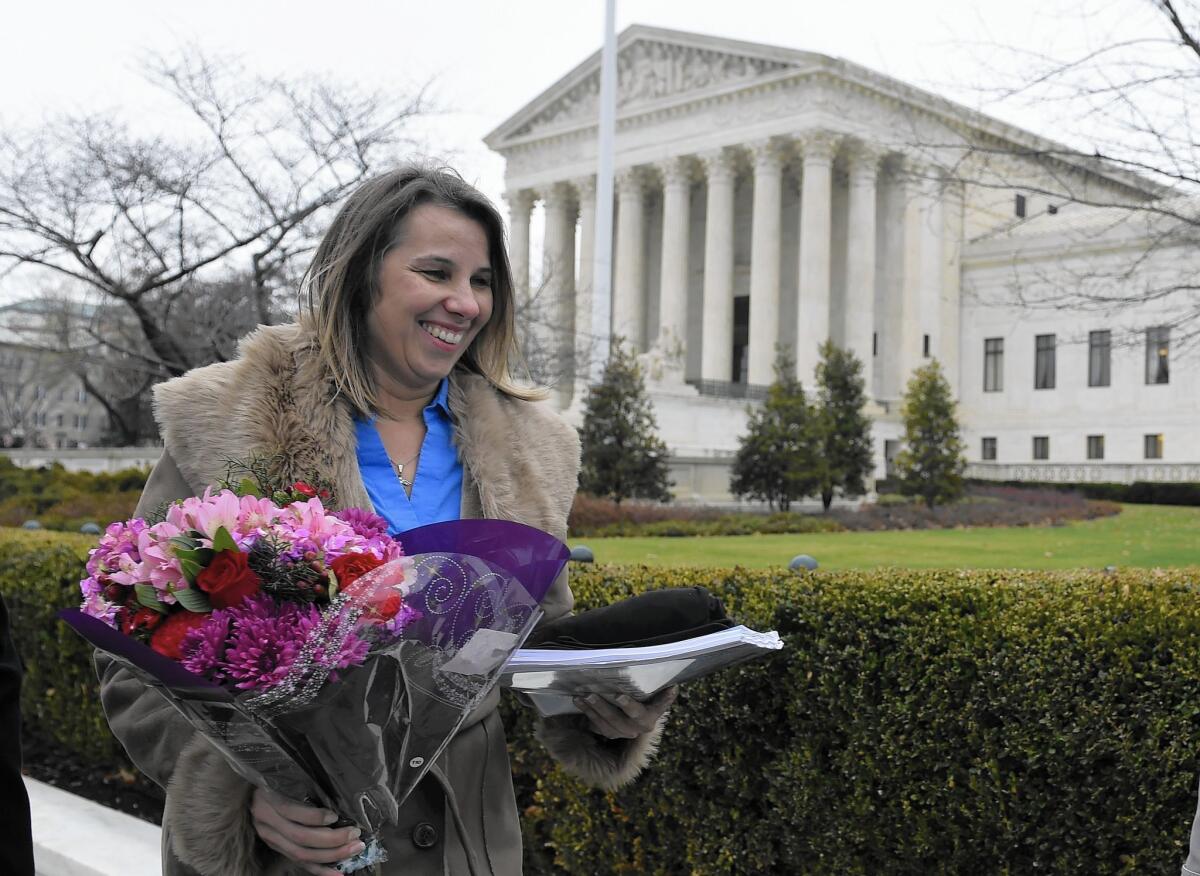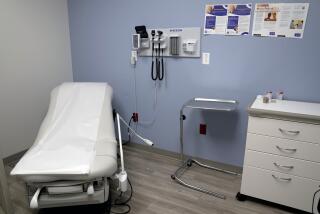Supreme Court acknowledges ambiguity in pregnant workers law

- Share via
Reporting from WASHINGTON — Decades after Congress passed an anti-discrimination law ensuring that pregnant employees “shall be treated the same” as other workers, the Supreme Court struggled Wednesday with exactly what that federal rule requires.
Some say it means employers must provide pregnant women with special treatment such as lighter duties or shorter hours, if such accommodation is needed.
But others insist no preferential treatment is mandated as long as pregnant women are treated the same as other workers with a similar temporary disability. That means an expectant mother could be fired if a company’s policy would take the same action against an employee who suffered, say, a back injury and was no longer able to fulfill the job’s physical requirements.
In a surprising set of exchanges, the justices said they thought the law could be read both ways.
It could require “favored” treatment for pregnant employees, Justice Antonin Scalia said, but not necessarily.
At issue before the court was a decision by United Parcel Service to lay off Peggy Young, a delivery truck driver, after she became pregnant in 2006. She was urged by a medical advisor not to lift more than 20 pounds during her pregnancy, and her job sometimes required her to lift packages as heavy as 70 pounds.
She asked a supervisor to be assigned to lighter duty for a time. Instead, she was laid off. UPS said it would give lighter duty to employees who were injured on the job, but not to workers who suffered other injuries or temporary disabilities outside of work. The company made no special allowance for pregnancies.
Young sued but lost before a federal judge and a U.S. appeals court. Both said UPS did not discriminate against her because of her pregnancy and that Young had been treated the same as others who could not carry out their duties, just as the 1978 law required.
UPS has since changed its policy to accommodate pregnant women. But New York attorney Caitlin Halligan defended the company’s previous stance as legal. Federal law does not require “preferential treatment” for pregnant employees, she told the court.
Justice Ruth Bader Ginsburg objected and said UPS appeared to be giving pregnant employees “least-favored” status. She cited reports that some men who had work injuries were given lighter duty.
Halligan countered that workers who were injured off the job did not get special accommodations.
Young’s attorney said companies still violated the law if they gave different treatment to any other workers who had a temporary disability, regardless of where or how it occurred.
“Employers have to treat pregnancy-related conditions as favorably as they treat non-pregnancy related conditions,” Samuel Bagenstos, a University of Michigan law professor, told the court.
U.S. Solicitor Gen. Donald Verrilli Jr. agreed that Young deserved to win if there was evidence that other UPS workers were given lighter duty for a time. The law makes clear that pregnant employees “cannot be treated worse” than others based on their condition, he said.
A ruling in Young vs. UPS will clarify the federal law. At least 15 states, including California, Illinois and Maryland, have adopted state measures that require employers to offer reasonable accommodations to employees who are pregnant.
More to Read
Sign up for Essential California
The most important California stories and recommendations in your inbox every morning.
You may occasionally receive promotional content from the Los Angeles Times.











